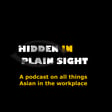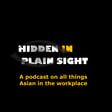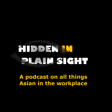
Know your worth, and pay it forward
In episode 2, we talk about the Lunar New Year and how some people have to navigate it in the workplace. We dive into how organizations can play a role in spearheading changes to make a more equitable, inclusive, and safe workplace.
We discuss Michelle Yeoh and the golden globes speech and how that moment defied Asian stereotypes, and what that may mean for our community in the workplace. We play myth busting with the concept of Asians being crazy rich and dive deeply into salary negotiation and its importance.
Michelle Yeoh and the golden globes speech
https://www.youtube.com/watch?v=dHpDqn0nlK8
Salary databases — Know your worth!
Tech start ups
https://www.builtinnyc.com/salaries
Salary for Industrial/organizational psychologist
https://www.newhaven.edu/_resources/documents/arts-sciences/graduate-programs/industrial-organizational-psychology/siop-income-employment-report-2022.pdf
Higher Education Institutions
https://www.chronicle.com/page/special-note-about-the-chronicles-faculty-and-staff-pay-data
Keep in mind, if the college/university is public, there is a good chance that salary data is public in that state. Google is your friend!
Federal Salary
https://www.federalpay.org/gs/2023
Article for nerds
Asians don't ask? Relational concerns, negotiation propensity, and starting salaries.
https://psycnet.apa.org/record/2022-58136-001
GPT Haiku
Know your work, be bold
Negotiate your high value
Claim what you deserve



